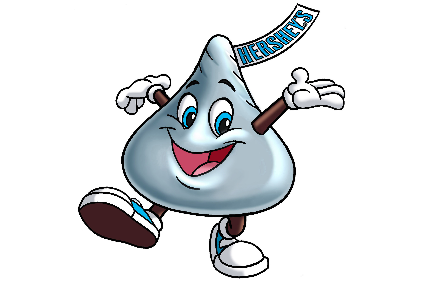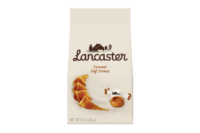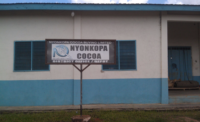 The days when school children handwrote a letter to a peer on the other side of the world sure have evolved.
The days when school children handwrote a letter to a peer on the other side of the world sure have evolved.
Hershey has recently launched a modern version of a pen pal program that links kids at a school in its hometown of Hershey, Pa. to children in Ghana. But instead of handwritten letters, the students connect through real-time, high-definition technology that creates a common, virtual classroom.
While the two places may have very different cultures, they share a common bond that will no doubt help the students understand each other — Hershey is the largest U.S. chocolate maker, while Ghana is a world leader in cocoa production.
The Hershey Learn to Grow: Ghana Distance Learning Program allows about 80 elementary students to learn together based on a curriculum developed by teachers in Hershey and Ghana.
It’s the first-of-its-kind and was developed in collaboration with the Milton Hershey School, the M.S. Hershey Foundation and Hershey Story Museum, Cisco, as well as African partners that include the Assin Fosu school, Ghana Education Service, Ghana Cocoa Board and Source Trust.
“We are thrilled by how well our students have responded to this new way of learning about Ghana and seeing links between cocoa growing and chocolate making,” says Joel Crowley, fourth grade teacher at the Milton Hershey School. “Everyone in Hershey has been inspired by the passion the children and teachers in Ghana have for learning together through this powerful technology.”
Meanwhile, Eric Gyeke, headmaster of the FOSCO Demonstration School in Ghana, says the children in their classroom are delighted by the relationships they’re forming with the students at the Milton Hershey School
“In Ghana, we are focused on bringing the highest quality education to our rural schools and believe this technology-based programming is a major step forward,” he explains.
The connection is made possible by high-definition telepresence video technology from Cisco.
During each session, 11- and 12-year-old students in Assin Fosu, Ghana — a rural town in the Central Region — participate in a life-like virtual classroom program with fourth-grade students at the Milton Hershey School (MHS) in Hershey, Pa.
The MHS students connect to Ghana from The Hershey Story Museum’s Chocolate Lab located in downtown Hershey, Pa. Teachers from both schools, in addition to educators from the museum, lead the sessions together, following the same curriculum and lesson plans.
Based on the early success of the Hershey’s Learn to Grow: Ghana Distance Learning program, the partners have decided to extend the program — originally slated for 10 modules over two months — through the full academic year and explore opportunities to further expand the program.
“At Milton Hershey School, we try to emphasize to our students that they are a very important part of a bigger community, and this program takes it one step further,” says Anthony Colistra, MHS president.
Students from both countries connect every two weeks and go through six structured lesson plans over the course of three months. They look at factors that impact daily life in each country — from climate and weather to understanding local geography — and also learn about how cocoa connects their respective local economies.
The Ghanaian students will share information about cocoa farming and learn how cocoa, the key ingredient to chocolate, is grown and where it originates.
Meanwhile, the U.S. students and teachers, will share information about how the cocoa grown in Ghana becomes delicious chocolate products.
And of course, the students in Ghana will get to taste chocolate bars made in Hershey, Pa., with many trying chocolate for the first time.
Each of the distance learning sessions incorporates a cultural exchange activity, an interactive lesson which ties into the curriculum and a “Q&A” session between the students.
This distance learning program is part of The Hershey Co.’s multiple initiatives to reinforce cocoa sustainability and accelerate farmer and family development in West Africa, where 70% of the world’s cocoa is grown.
Hershey also recently committed to having third-party certification for 100% of the cocoa it uses for all of its chocolate products by 2020.
For more information about Hershey's cocoa sustainability programs in West Africa, visit: www.hersheycocoasustainability.com.
Hershey creates sweet connection between students in U.S., Ghana
Chocolate maker sets up real-time links to create virtual classrooms.





